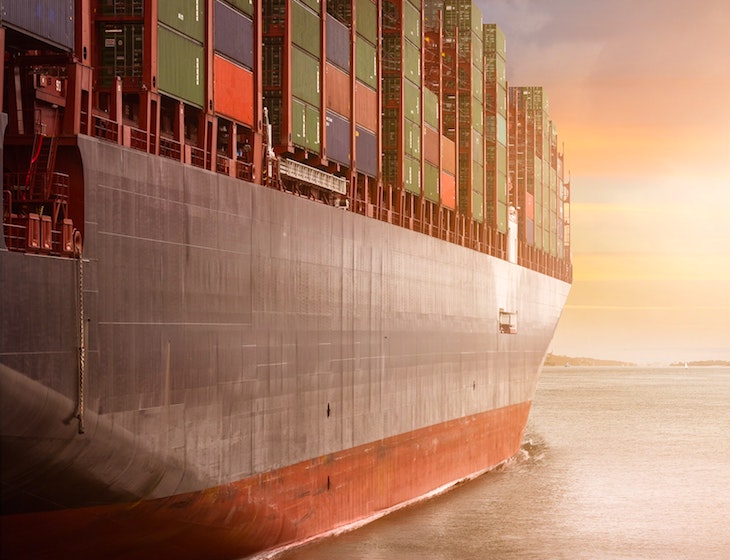
You’ve probably heard of the upcoming IMO2020 regulations that are set to take place on the 1st of January 2020. We explain what the IMO2020 regulations are, how shipping lines are preparing for the changes and how they will affect the shipping industry and shipping costs.
What is IMO2020?
IMO2020 is a change in regulations which forces all maritime vessels, including container shipping lines, to switch to lower sulphur, but higher cost fuels. As of January 1st 2020, the IMO2020 regulations will require all vessels to emit less Sulphur particles. The global sulphur cap, mandates the use of fuel with a sulphur content of 0.5% instead of 3.5%.
Why are the IMO2020 regulations being enforced?
These regulations are coming into force in order to protect the environment and ensure the sustainable future of the container shipping industry.
Container ships use traditional types of fossil fuel to run their engines. After combustion, these types of fuel, known as ‘bunker fuels’, result in the emissions of Sulphur Oxides (SOx) into the atmosphere. The IMO state that SOx emissions are harmful to the environment. According to the IMO, limiting SOx emissions from ships will improve air quality in port cities and coastal areas, and protect the environment.
How can shipping lines comply with IMO2020?
Shipping lines are responsible for ensuring their ships are compliant. There are three basic ways that ships can comply. By 2020 all ships must do one of the following:
- Use a more expensive fuel with a sulphur content of 0.5%.
- Burn a high sulphur fuel and run the emissions through an exhaust gas cleaning system, known as a scrubber.
- Use an alternative fuel like LNG, methanol or LPG.
What has been the impact to date to the shipping industry?
Although it is 1st January 2020 that these new regulations will come into effect, the shipping lines are already taking measures to accrue the additional investment in their fleets.
We have already seen an increase in costs with Maersk being the first shipping line to announce in September 2018, the separation of the bunker (fuel) element from the freight rate. This change was introduced on 1st January 2019. The segregation of the burden of fuel costs is essential in order for this cost to be transparently monitored.
Other major shipping lines have since made similar announcements designed to limit the exposure of fuel cost escalation. Most of which also came into effect from 1st January 2019.
All shipping lines have isolated the cost of the average fuel price in key bunkering ports around the world, which will then be subject to a quarterly review based on the transparent cost development.
What is the longer term impact likely to be?
The IMO regulations will have a broad impact. IMO2020 compliance is expected to cost carriers an estimated $15 billion threatening to impact, not only the prices of bunker fuels, but also the cost of shipping goods around the world. Analysts predict that is is inevitable that some of the additional cost will be passed on to consumers.
While the bunker adjustment mechanism increases visibility and eases the transition towards new fuel types to comply with the sulphur limit, there are still questions as to when bunker adjustment factors will come into force in the market. Shipping lines will need to be bunkering with low-sulphur fuel by the fourth quarter this year to ensure they are not operating on high sulphur fuel by the cut off date.
The new regulations may also create changes to shipping practices. Some analysts are suggesting that ‘slow-steaming’, where a ship reduces its speed to save fuel, may become more common, which may lengthen delivery times for businesses ordering goods from abroad. The impact on shipping practices is currently unknown, but it is likely to be far reaching.
Overall, the costs of the IMO2020 movement will be felt around the world, from the shipping lines themselves all the way through the supply chain to the end consumer.
At PFE we are acutely aware of the need for cost certainty and will endeavour to keep you informed of any further industry announcements as and when information becomes available.
If you have any questions please don’t hesitate to contact [email protected].


